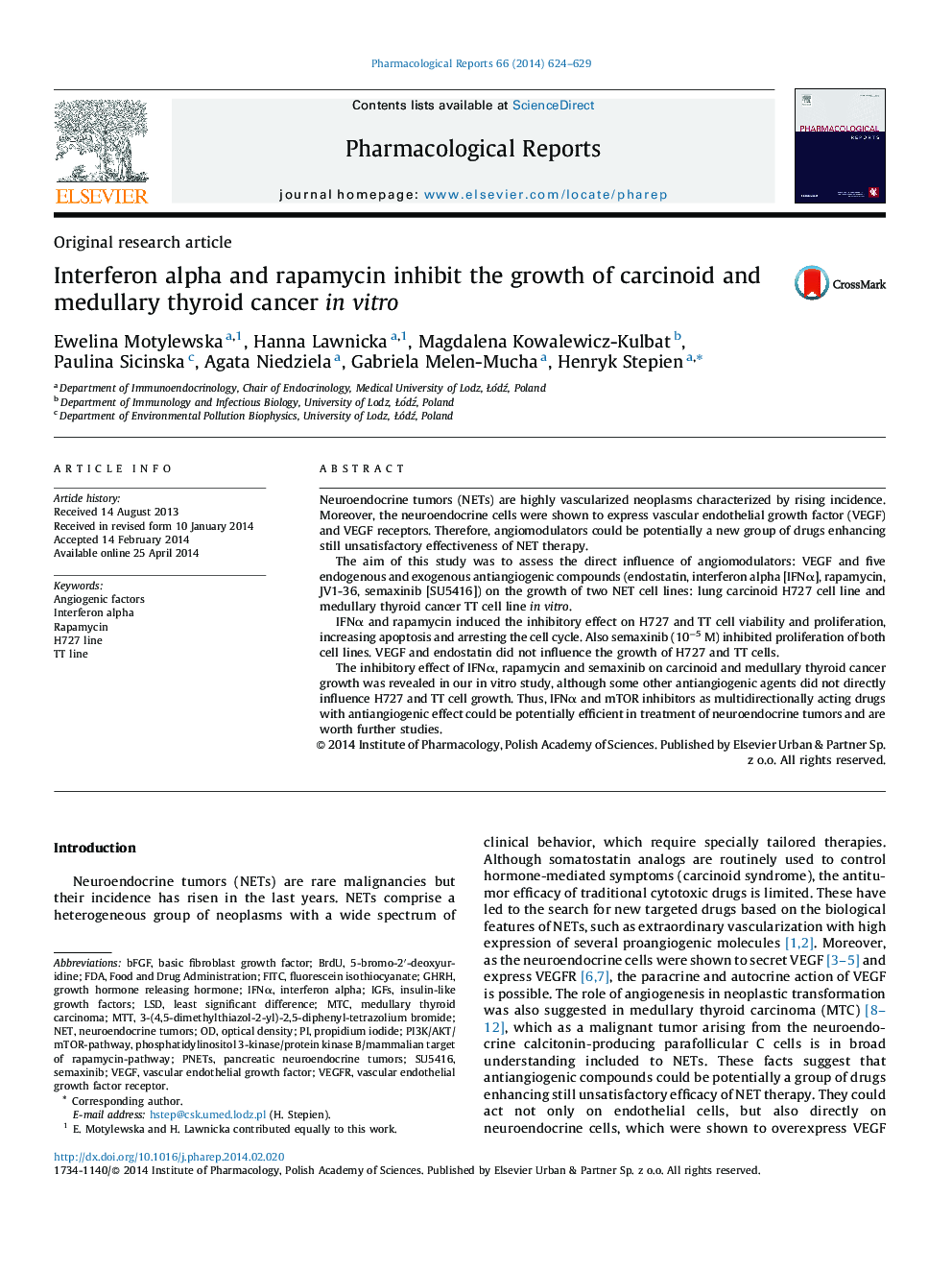| کد مقاله | کد نشریه | سال انتشار | مقاله انگلیسی | نسخه تمام متن |
|---|---|---|---|---|
| 2012096 | 1067024 | 2014 | 6 صفحه PDF | دانلود رایگان |
Neuroendocrine tumors (NETs) are highly vascularized neoplasms characterized by rising incidence. Moreover, the neuroendocrine cells were shown to express vascular endothelial growth factor (VEGF) and VEGF receptors. Therefore, angiomodulators could be potentially a new group of drugs enhancing still unsatisfactory effectiveness of NET therapy.The aim of this study was to assess the direct influence of angiomodulators: VEGF and five endogenous and exogenous antiangiogenic compounds (endostatin, interferon alpha [IFNα], rapamycin, JV1-36, semaxinib [SU5416]) on the growth of two NET cell lines: lung carcinoid H727 cell line and medullary thyroid cancer TT cell line in vitro.IFNα and rapamycin induced the inhibitory effect on H727 and TT cell viability and proliferation, increasing apoptosis and arresting the cell cycle. Also semaxinib (10−5 M) inhibited proliferation of both cell lines. VEGF and endostatin did not influence the growth of H727 and TT cells.The inhibitory effect of IFNα, rapamycin and semaxinib on carcinoid and medullary thyroid cancer growth was revealed in our in vitro study, although some other antiangiogenic agents did not directly influence H727 and TT cell growth. Thus, IFNα and mTOR inhibitors as multidirectionally acting drugs with antiangiogenic effect could be potentially efficient in treatment of neuroendocrine tumors and are worth further studies.
Journal: Pharmacological Reports - Volume 66, Issue 4, August 2014, Pages 624–629
